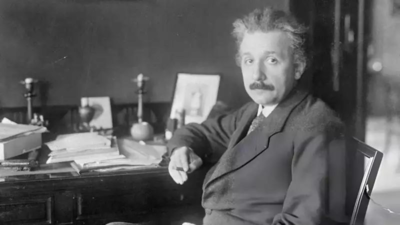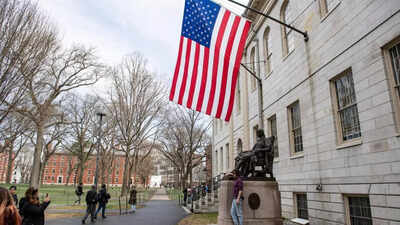Why did Albert Einstein drop out of school at the age of 15? The powerful lesson every student can learn from his exit

Albert Einstein did not merely drift away from school; he broke from it with the quiet force of a mind unwilling to be shackled. At fifteen, he walked out of Munich’s Luitpold Gymnasium–a prestigious secondary school—not in rebellion, but in refusal, a refusal to conform to the rigid, authoritarian machinery of an education system that prized obedience over understanding. It was, in hindsight, the first bold rupture in a life that would come to be defined by its elegant resistance to convention. The boy who would one day upend the known universe with his theory of relativity began by rejecting a far smaller—but no less suffocating—universe, the narrow classroom in which curiosity was subordinate to command.
The School That Stifled Genius
Luitpold Gymnasium (now Albert-Einstein-Gymnasium) was no ordinary school. It was a bastion of classical Prussian-style education — heavily focussed on rote memorization, strict discipline, and unbending obedience to authority. For the young Einstein, this was not just uninspiring — it was suffocating.Einstein’s sister, Maja, later wrote about his inner turmoil. “The military tone of the school, the systematic training in the worship of authority that was supposed to accustom pupils at an early age to military discipline, was also particularly unpleasant for the boy. He contemplated with dread that not-too-distant moment when he will have to don a soldier’s uniform in order to fulfill his military obligations.”The dread wasn’t unfounded. Under German citizenship laws at the time, a male citizen was not allowed to emigrate after age 16 unless he fulfilled his military duty. Failing to do so meant being labeled a deserter.
The Smile That Infuriated Authority
Einstein’s resistance to this environment went beyond quiet discontent — it became a visible defiance. In Subtle is the Lord: The Science and Life of Albert Einstein, author Abraham Pais recounted a striking story from Einstein’s classroom days. “At the Gymnasium a teacher once said to him that he, the teacher, would be much happier if the boy were not in his class. Einstein replied that he had done nothing wrong. The teacher answered, ‘Yes, that is true. But you sit there in the back row and smile, and that violates the feeling of respect that a teacher needs from his class,’” he wrote.This wasn’t just a matter of behaviour; it was a cultural collision. Einstein’s quiet smile, a subtle protest against blind authority, was seen as insubordination in a system where questioning was equated with rebellion. The same teacher had later declared, infamously, that Einstein “would never get anywhere in life.”
A Strategic Escape
Einstein, unhappy and increasingly anxious about being conscripted into the military, devised an unusual exit strategy. With help from a sympathetic doctor, he obtained a certificate stating he was suffering from ‘mental exhaustion’. Using this as grounds for withdrawal, he left the Gymnasium without a diploma — and without informing most of his teachers.He fled to Italy to rejoin his family, who had moved to Milan months earlier after the collapse of his father’s electrical business. He was now, technically, a dropout — but far from defeated.Einstein used his time in Italy to continue self-study, especially in advanced mathematics and physics. Within a year, he applied to the Swiss Federal Polytechnic in Zurich. Although he initially failed the general section of the entrance exam, his exceptional performance in math and physics earned him admission — after completing a year of preparatory schooling in Aarau, Switzerland.
A Dropout From Obedience, Not School
Einstein’s withdrawal from the Luitpold Gymnasium has often been portrayed as an early stumble—a boy disillusioned, a student who could not adjust. But to read it that way is to miss the deeper current shaping his life. This was not retreat; it was realignment. In choosing to walk away from the regimented corridors of a system designed to mold rather than awaken, Einstein took his first deliberate step toward the intellectual independence that would define him.The very atmosphere that sought to contain him—the rote drills, the deference to authority, the absence of curiosity—became the crucible in which his lifelong resistance to conformity was forged. He did not abandon learning. He simply refused to accept that learning must come with submission.In that moment, quietly and without ceremony, Einstein affirmed a principle that would echo through his science and his life: that truth is not handed down by authority—it is discovered by questioning it.




